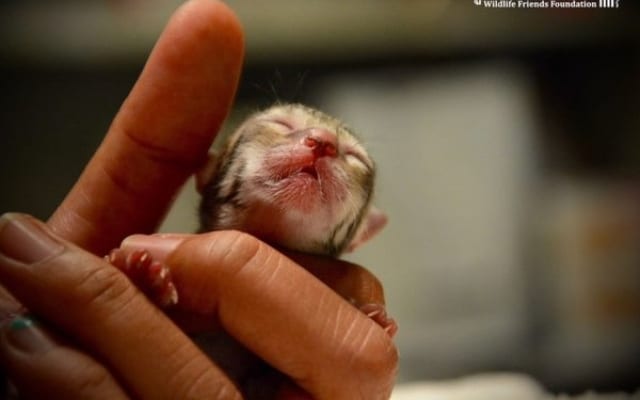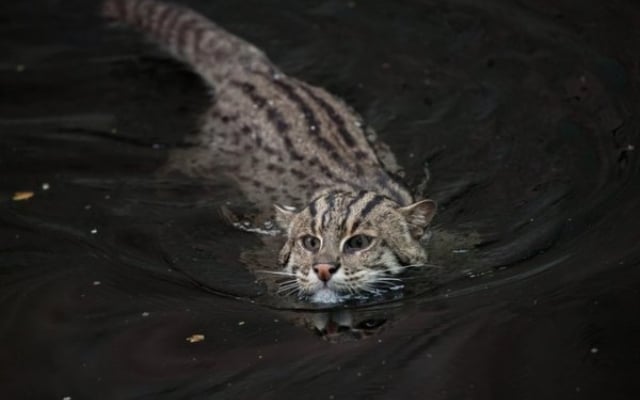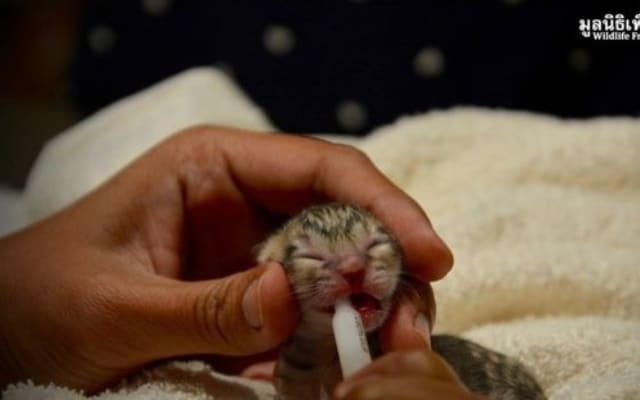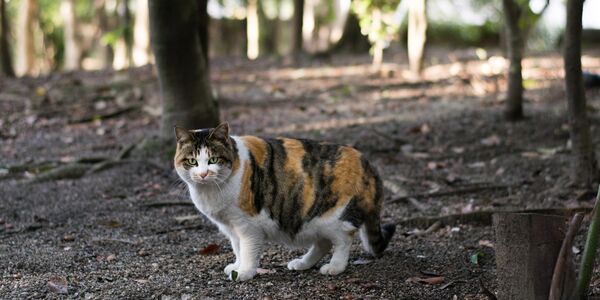Imagine walking through a quiet neighborhood in Thailand and spotting a tiny kitten wandering all alone. This is exactly what happened to one family who discovered a small feline that was anything but ordinary.
One evening, as the family enjoyed their time outdoors, they noticed the little kitten on the street. Curious, they approached the creature and quickly realized it didn’t look like any kitten they had seen before.

Unsure of what kind of animal they had found, they decided to call the Wildlife Friends Foundation Thailand (WFFT), an organization dedicated to helping animals. Experts from WFFT soon arrived to take a closer look.
After careful examination, the specialists concluded that the animal was a fishing cat—a rare type of wild cat that is nearing extinction.

Fishing cats are different from regular house cats. They can grow to be twice as big and have a special love for water and fish. They are known for hunting and eating fish, which is how they got their name.
According to Wikipedia, “the fishing cat (Prionailurus viverrinus) is a medium-sized wild cat of South and Southeast Asia. Since 2016, it is listed as Vulnerable on the IUCN Red List. Fishing cat populations are threatened by destruction of wetlands and declined severely over the last decade. Fishing cats live foremost in the vicinity of wetlands, along rivers, streams, oxbow lakes, in swamps and mangroves.”

The experts from WFFT discovered that the kitten had been born just a few hours before the family found him. They were puzzled about how the mother could have left her newborn baby, which is unusual behavior for this species.
The family felt a strong connection to the rare kitten and were allowed to care for him on a trial basis. They named him Simba. It was clear that Simba felt close to the family as well.
They kept watching for the mother cat, thinking she might come back for her baby. Sadly, she never did.
Instead, the family fed Simba milk and cared for him as he grew into a beautiful fishing cat. He is still alive and well, but it’s very important that he continues to thrive.
According to the WFFT, “poaching and retribution killing were the major causes for a high Fishing Cat mortality of 84% in Thailand.”
So, not only was it amazing that Simba was found and survived, but his life is also very important for the survival of his species.


